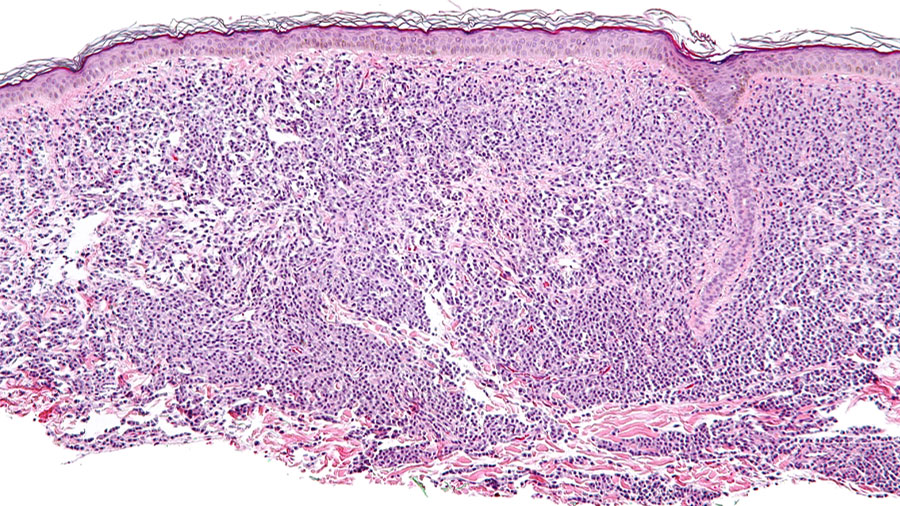Too much of a good thing
Mastocytosis is a rare disorder characterized by the uncontrolled proliferation and accumulation of nonfunctional mast cells, a type of white blood cell in the immune system responsible for protecting the body against infections and generating inflammatory responses. In mastocytosis, these normally beneficial mast cells become dysfunctional, resulting in symptoms that can range from mild to life-threatening.
Approximately 50,000 people in the United States live with mastocytosis, and its severity can significantly affect their quality of life.
Today is Mastocytosis & Mast Cell Diseases Awareness Day. It’s an observance that serves as a platform to educate the public, provide support to individuals living with mastocytosis, and promote ongoing research efforts related to this rare and complex condition.
Origin and forms
The leading cause of mastocytosis is gain-of-function mutations in the KIT gene, which are implicated in over 90% of systemic mastocytosis cases. The KIT gene encodes receptor tyrosine kinases that are crucial for the development and proper functioning of various cell types, including mast cells. In cases of mutations, mast cells begin to proliferate uncontrollably.
There are two primary forms of mastocytosis: cutaneous and systemic.
The first reported case of cutaneous mastocytosis was in 1869 by E. Nettleship and Waren Tay, and in 1887 Paul Gerson Unna attributed these skin lesions to the presence of mast cells. Systemic mastocytosis, meanwhile, was first reported in 1936 by French scientists A. Sézary, G. Levy-Coblentz and P. Chauvillon.
Challenges and progress
Significant research efforts have been devoted to understanding and contending with mastocytosis.
These efforts include identifying associated mutations, improving early diagnosis, uncovering genetic mechanisms responsible for mast cell proliferation and exploring tyrosine kinase inhibitors as potential treatments.
While there is currently no cure for mastocytosis, various drugs can be employed to manage its symptoms. Promising results have been seen with imatinib mesylate for systemic mastocytosis, with an ongoing exploration of other tyrosine kinase inhibitors such as midostaurin, dasatinib and AMN107.
In severe cases, cytoreductive therapy may be recommended.
Management and treatment of mastocytosis presents challenges due to the complexity of the condition and the variability of symptoms among individuals.
Some challenges include heterogeneity of symptoms, misdiagnosis and delayed diagnosis, unpredictable disease triggers and lack of standardized treatment. Major challenges associated with mastocytosis research include complex pathophysiology and poor understanding of disease development mechanisms.
These challenges make developing a targeted fit-it-all therapy difficult. Still, researchers and clinicians continue to work together to improve our understanding of disease development and the most effective treatment.
Horizon
The future of mastocytosis research and treatment is exciting, with increased government and nongovernment efforts aimed at better understanding disease mechanisms and developing effective strategies.
There are several ongoing mastocytosis-related clinical trials with the potential to revolutionize disease treatment.
Due to the heterogeneity of the disease, the exploration of personalized/precision medicine is very promising. Single-cell RNA seq is being explored to determine the characteristics of mastocytosis patients and identify various subsets of patients.
In addition, it is necessary to leverage metabolomics to identify and characterize biomarkers associated with mastocytosis to develop assays that can detect disease earlier.
The most pressing research needs in mastocytosis research include mastocytosis manifestations in children, centralized patient registries to foster extensive data gathering and sharing, development of more specific and sensitive biomarkers, development of targeted and personalized therapies and disease prediction.
Conclusion
World Mastocytosis Day is a call to action, inviting everyone to be part of a global movement.
Several initiatives are dedicated to addressing mastocytosis, including The Mast Cell Disease Society, The European Competence Network on Mastocytosis and more recently the American Initiative for Mast Cell Disorders. These organizations provide support to patients, their families, healthcare professionals and researchers, while also advancing knowledge and research in mast cell diseases through education, advocacy and collaboration.
Together, we can promote research, advance medical knowledge, and enhance the quality of life for individuals living with mastocytosis. Through our collective efforts, we can transform the challenges of today into the hope of a better tomorrow for people living with mastocytosis.
Enjoy reading ASBMB Today?
Become a member to receive the print edition four times a year and the digital edition monthly.
Learn moreGet the latest from ASBMB Today
Enter your email address, and we’ll send you a weekly email with recent articles, interviews and more.
Latest in Science
Science highlights or most popular articles

Avoiding common figure errors in manuscript submissions
The three figure issues most often flagged during JBC’s data integrity review are background signal errors, image reuse and undeclared splicing errors. Learn how to avoid these and prevent mistakes that could impede publication.

Ragweed compound thwarts aggressive bladder and breast cancers
Scientists from the University of Michigan reveal the mechanism of action of ambrosin, a compound from ragweed, selectively attacks advanced bladder and breast cancer cells in cell-based models, highlighting its potential to treat advanced tumors.

Lipid-lowering therapies could help treat IBD
Genetic evidence shows that drugs that reduce cholesterol or triglyceride levels can either raise or lower inflammatory bowel disease risk by altering gut microbes and immune signaling.

Key regulator of cholesterol protects against Alzheimer’s disease
A new study identifies oxysterol-binding protein-related protein 6 as a central controller of brain cholesterol balance, with protective effects against Alzheimer’s-related neurodegeneration.

From humble beginnings to unlocking lysosomal secrets
Monther Abu–Remaileh will receive the ASBMB’s 2026 Walter A. Shaw Young Investigator Award in Lipid Research at the ASBMB Annual Meeting, March 7-10 in Washington, D.C.

Chemistry meets biology to thwart parasites
Margaret Phillips will receive the Alice and C. C. Wang Award in Molecular Parasitology at the ASBMB Annual Meeting, March 7-10 in Washington, D.C.


